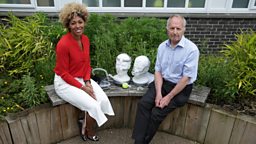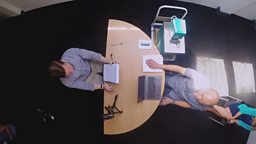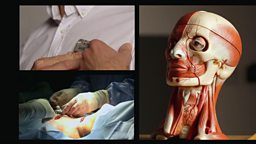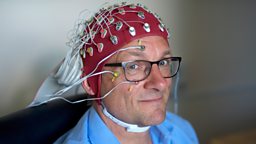What can I do about age-related hearing loss?
Ten million people in the UK – one in six of us – have some degree of hearing loss. We tend to see it as an inevitable part of ageing, but there’s growing evidence it can have wider health implications.

It can lead to social isolation, which in turn can contribute to mental health problems such as depression. Some research suggests that it may be linked to an increased risk of developing dementia.
However, people in the UK suffer on average for 10 years before they seek treatment for hearing loss.
One reason for this is that many are worried about being given a large obtrusive hearing aid, but modern varieties are discreet and effective.
Another reason many people don’t seek treatment is they don’t actually notice that their hearing is declining. It can be tricky to spot gradual hearing loss, in part because our brains have a surprising way to compensate without us being aware, by relying more heavily on our vision.
This is something we can use to our advantage, to help us cope with hearing loss.
Neuroscientists once thought that dedicated parts of the brain dealt with hearing and vision separately, and only later was the information from the two senses put together. Now scientists know that our brain is ‘cross-referencing’ information from our senses at an earlier stage than we thought. One of the ways this benefits us, is by helping in situations that are difficult for hearing.
For instance, as we age, hearing what someone is saying in a noisy environment like a restaurant can become very challenging. However, our vision can provide our brain with extra information, like mouth movements and gestures, to make it easier and less effortful to pick a person’s voice out of the background noise and discern what they are saying.
If you have trouble hearing and want to benefit from this, what can you do?
- If you’re with other people, place yourself in the middle of the group.
- Have the light behind you, to help you see the other person’s face clearly.
- Ask people to face you when they are talking to you and not cover their mouth.
Learning to lip-read is another effective way to help with hearing loss. This works not only as a skill to help you cope in situations where it is difficult to hear, but also trains the brain to look and listen at the same time. This is thought to help avoid the cognitive decline that can be associated with hearing loss.
Although there is no cure for age-related hearing loss, it’s important to seek professional help without delay if you think your hearing is deteriorating. There are many ways to help cope with the condition, so approach your GP who will be able to rule out any temporary causes for hearing loss and refer you for a hearing test, if you need it.



















































